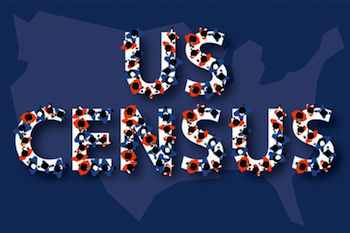- MENU
- HOME
- SEARCH
- WORLD
- MAIN
- AFRICA
- ASIA
- BALKANS
- EUROPE
- LATIN AMERICA
- MIDDLE EAST
- United Kingdom
- United States
- Argentina
- Australia
- Austria
- Benelux
- Brazil
- Canada
- China
- France
- Germany
- Greece
- Hungary
- India
- Indonesia
- Ireland
- Israel
- Italy
- Japan
- Korea
- Mexico
- New Zealand
- Pakistan
- Philippines
- Poland
- Russia
- South Africa
- Spain
- Taiwan
- Turkey
- USA
- BUSINESS
- WEALTH
- STOCKS
- TECH
- HEALTH
- LIFESTYLE
- ENTERTAINMENT
- SPORTS
- RSS
- iHaveNet.com
Ana Veciana-Suarez

Eager to be counted and get my fair share, whatever that might be, I recently filled out my Census form like a dutiful citizen -- and stepped into a controversy along the way. It wasn't intentional, but that's what happens when, for practical reasons, we box in the complex.
Yes, I'm referring to question No. 8 on the 2010 form: Are you of Hispanic, Latino or Spanish origin?
I quickly scanned the choices and answered, "Yes, Cuban." But as soon as I did, a doubt gnawed at the edges of my brain.
How Cuban am I, really? I'm but a generation removed from my Catalonian mother and paternal grandparents. Should I mark the Spanish origin box? What's more, I was educated in the United States, a formative experience that, regardless of nationality, influences life-choices in profound ways. Does that make me more American than a Cuban who arrived in his 20s?
I remember little of my early years and now, well into middle-age, I consider myself a Cuban "American" -- when I think of ethnic identity at all. Mostly I'm too busy with the mundane details of work and household to entertain existential inquiries.
I confided this to a friend whose father was German and mother Cuban. Like me, she was exiled to this country very young. Both of us are married to non-Hispanic men -- she to an Irish-American and I to a Jew whose great-grandparents came from what is now Austria and Germany.
At what point, she wondered, does one stop identifying with an ethnic group? Second generation? Third? When the family has lost the language and maintains only a tenuous hold on the culture?
My friend's husband wants to know why the Census form offered no box for his national origin. A couple of generations removed from the Emerald Isle, he doesn't hyphenate his identity. He is as American as ... well, as New York's
I suspect that zeroing in on Hispanic is a matter of numbers. According to Census estimates, 48 million Hispanics live in the United States -- almost 16 percent of the population. The only country with more Hispanics is Mexico. Yet, even among this pan-Latino group, there is disagreement about what to call ourselves.
Language is not always the common denominator. In New Mexico, a Fernandez family may not have spoken Spanish since the 19th century. And a third-generation Tejana whose ancestors were Aztecs may have little in common with a Cuban whose parents hailed from Galicia.
Following a long and dubious tradition, the grandchildren of yesterday's immigrants accuse recent arrivals of not being American enough, as if a Geiger counter could detect patriotism and commitment to a set of cultural values. No such tool exists, of course. Just ask the Joses, Ahmeds and Patricks fighting in Afghanistan.
Nonetheless, we keep identifying and quantifying in hopes of describing who we are as Americans. We're forever in search of what makes us special, what makes us whole.
Perhaps decades from now, when our grandchildren run the country, the debate -- and the Census question -- will sound positively quaint. Minorities will be the majority, and what makes us the great U.S. of A will be the very diversity that once divided us.
Available at Amazon.com:
Willful Neglect: The Dangerous Illusion of Homeland Security
The Reluctant Spy: My Secret Life in the CIA's War on Terror
The Political Fix: Changing the Game of American Democracy, from the Grassroots to the White House
WORLD | AFRICA | ASIA | EUROPE | LATIN AMERICA | MIDDLE EAST | UNITED STATES | ECONOMICS | EDUCATION | ENVIRONMENT | FOREIGN POLICY | POLITICS
2010 Census: We Don't Fit Neatly Into Little Boxes | Ana Veciana-Suarez